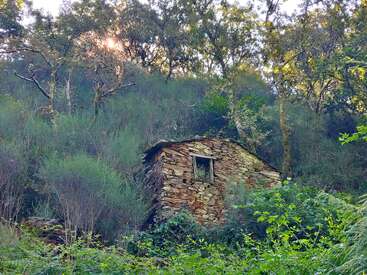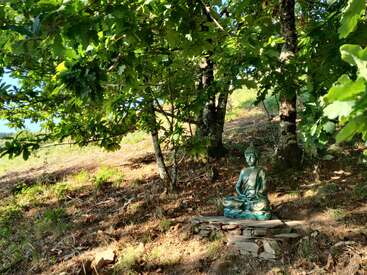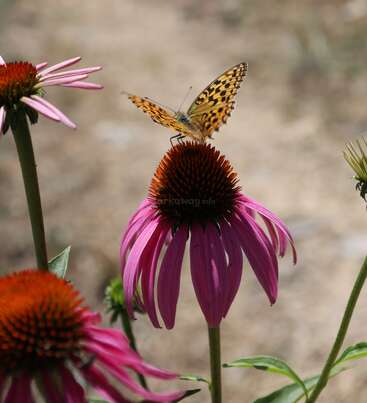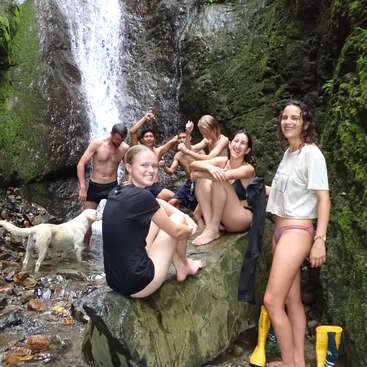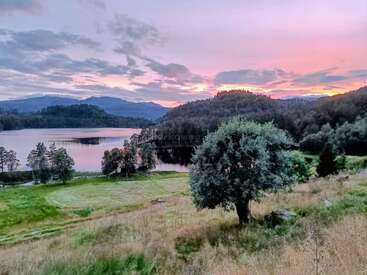Profilangaben

Host Bewertung
85 %

Letzte Antwort
25 Nov. 2025

Beantwortungsquote
100.0 %
Antwortet in der Regel innerh. 1 Tag

Feedback
3

ID verified

Verifizierte E-Mail
Country info
Abzeichen (3)



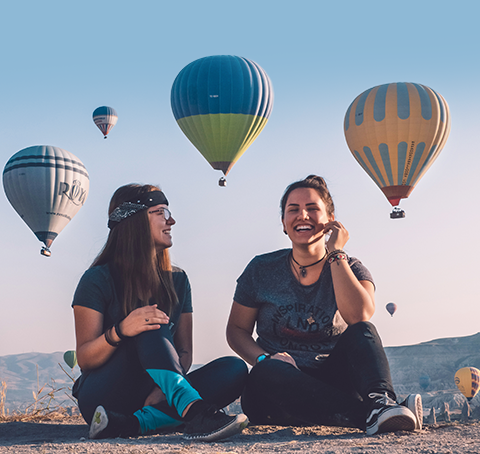
Finde deinen perfekten Gastgeber
Geforderte Mindest-Aufenthaltsdauer: mindestens 1 Woche
Informationen

Beschreibung
Join us for a permacultural exchange!
UPDATE (Nov. 2025)
We are desperately trying to get a couple of hundred trees into the ground, mostly on a steep hillside. Anyone brave enough and fit enough to join us with this challenge would be very welcome.
ATUALIZAÇÃO (Nov. 2025)
Estamos a tentar desesperadamente plantar algumas centenas de árvores, principalmente numa encosta íngreme. Qualquer pessoa corajosa e em boa forma física que se queira juntar a nós neste desafio será muito bem-vinda.
----------------------------------------------------------------------------------------------------
Olá!
On a series of abandoned stone terraces in a secluded valley, we - ( = one young man and his slightly decrepit parents) - are creating a permaculture Forest Garden. Simultaneously, on the opposite side of the valley we're trying to plant a forest of native trees. As if that weren't enough for three mere mortals to cope with in one little lifetime, we also want to establish a nature reserve on the valley floor; and we're eager to restore the xisto ruins scattered across our land and set up a low-key retreat centre.
If any of this sounds interesting - if you'd like to be involved with eco-system restoration, or if you enjoy small-scale fruit growing and gardening, - read on!
Olá! Estamos especialmente ansiosos por partilhar o nosso projeto multifacetado – de permacultura, Horta Florestal, e conservação da natureza – com pessoas portuguesa local. Esperamos que nos perdoem por não termos traduzido o longo texto que se segue
LONG STORY - (Very long... Make yourself a cup of tea before you settle down to read this. )
It was many, many years ago, before we had even left school, that Me and Him decided to drop out.
Born into the luxury of the Western economic and social system, we both despised it for its environmental costs - and so off we went, footloose and carefree, on the wings of the wind. Literally. We cobbled together a sailing boat, with second-hand masts and second-hand sails, and we set off for the horizon.
But 30 years and three children later, it finally dawned on us that dropping out is not enough.
Despite the difficulty inherent in raising three children to adulthood with no steady income, we had 30 years of great fun while we travelled aimlessly aboard our sailing boat; but while we were having fun, the world was winding down. The world, as we know it, is dying! So it finally dawned on us that if we want to change the world - if we want to try to put the brakes on global warming and ecological destruction - we have to actually DO something.
Obviously, we'd long ago stopped eating meat. Likewise, we've always done our best to avoid buying plastic and to avoid burning fossil fuels. So, what more can a person do, we asked ourselves?
Banner waving is not really our scene. We did try it for a season, but it didn't seem to us that we were achieving anything with our protests. So that just left tree-planting.
The world is getting hotter because there's too much CO2 in the atmosphere. Trees eat CO2! And so what the world urgently needs is more trees.
So we moored our dreams and aspirations on a mountainside in Portugal, and we got stuck in with the work.
Roughly speaking, our plan was to buy abused land (land which has been clear-cut or burnt by wildfire) and cover it in trees. In keeping with this idea, on the hillside opposite our new abode we've planted the beginnings of a native forest, and on the long-abandoned terraces immediately below us we're planting a Forest Garden. (Essentially, a Forest Garden consists of various fruit trees and nut trees, with berry-bearing shrubs and edible ground-cover beneath them.)
Since we are a family of sailors, none of us had ever planted a tree before - nor even a carrot or a rose bush - and so progress has been less than wonderful. But we're learning! We're currently the proud parents and protectors of about 1,000 trees and bushes.
We've also started growing our own veg, but we certainly haven't yet reached the stage where we could call ourselves self sufficient.
Setting up a place like this is a lot of work for just the three of us, so we're always happy to host like-minded people who share our obsession with :
trees; ecology; lichens; Permaculture; building ponds; Restoring Eco-Systems; humane ways to keep wild boar from destroying the fruit trees; cunning irrigation schemes; Forest Gardens; watermills; hiking; frogs, snakes, beetles, deer, bats, spiders, owls... and all other forms of wildlife; trying to get enough trees into the ground to absorb CO2 emissions so that we don't all die in the really big heatwave that's coming soon.
Having only narrowly escaped disaster during the 2025 'fire season' (formerly known simply as summer) we must now add fire prevention strategies to our list of interests. After all, there's no plant in planting a forest only to have it go up in smoke!
KEY WORDS : arvores; ecologia; líquenes; permacultura; construção de charcas; restauração de ecossistemas; formas humanas de impedir que os javalis destruam as árvores de fruto; Jardin Florestal; moinhos de água (azenhas) ; plantar árvores suficientes no solo para absorver as emissões de CO2 para que não morramos todos na grande onda de calor que se avizinha; caminhadas; sapos, cobras, escaravelhos, veados e corsas, morcegos, aranhas, corujas... e todas as outras formas de vida selvagem
After a lifetime of travelling we're accustomed to being part of a mobile, flowing community - an infinite fellowship of people of all races, cultures, ages and backgrounds. We're used to being part of a loose affiliation of folk who consider the whole planet to be their home; a people for whom No Fixed Abode is an address to be proud of.
We love our new lifestyle - we love the fact that we're finally doing something meaningful and worthwhile, for the health of the planet - but we do miss the company of like-minded souls who drift through our ambit.
We would also be very happy to share the project on a long-term basis if we are so lucky as to meet a couple, or a family, or an individual who seems to belong with us.
ABOUT US :
We are all vegetarian and non-smokers.
Our first language is English, but we can also get by in Portuguese, Spanish, and French.
- Mum is an artist, a writer, and a Buddhist, but currently without the time to practice any of these things. She fantasises about restoring all the old stone buildings in the valley and inviting a Buddhist nun to live with us and lead retreats.
- Dad is a mechanic. He likes fixing things, and he also likes digging ponds and watering the trees. He has Parkinson's disease, but he keeps going. In fact, it seems that the every day, all day exercise which is entailed in our project helps to keep the degenerative disease at bay.
- Son (aged 33) is proficient with electronics and computing but nowadays spends most of his time building stone walls, pruning trees, installing irrigation pipes, and planning the nature conservation area. He is the MD of the entire project. He hopes that we will one day be able to keep a floc of goats and make cheese.
Elder Daughter - is still sailing....
Younger Daughter - has a degree in Environmental Science; so we're hoping she'll drop by again, some day, and give us some professional input.
We all like sailing, when we have the time...
ABOUT THE TREES :
Besides operating as Nature's own carbon capture technology, our seedling and sapling trees are the first step in the restoration of the local, fire-damaged environment. Mother Nature will do most of the work - and in a truly magical way - but, for the most beneficial outcome, we need to give her a helping hand.
As we see it, there is almost no more valuable thing that a person can do, in this time of climate collapse, than assist in the effort to restore the eco-system; because without a healthy eco-system the world, as we know it, is obviously going to die.
Eventually, the forest of oaks, cork oaks, and other native trees that we're planting will repair the local water cycle. Trees suck up water and subsequently allow it to evaporate through their leaves; and this encourages rainfall. Meanwhile, the roots of the trees will improve retention of water in the soil and will also hold the soil together.
Trees also provide shade, and besides this they have also been shown to have a cooling effect on the immediate surroundings.
The native trees, and the spontaneous under-storey, will also provide a habitat for wildlife - and, indeed, this part of the dream is already beginning to come true. Already, we are seeing more butterflies and other insects and more reptiles. Already the roe deer, the badgers, the red squirrels, rabbits, and martens have returned to our valley. Rumour has it that a lynx was recently seen not far away from us, so we have our fingers crossed that he might someday pay a visit to our haven.
Our ponds also serve as homes for wildlife. Within a week of the creation of our first pond it was home to newts, a water vole, and a water snake, and insects of various sorts were laying their eggs there. So we now want to build several other ponds, over the various springs which issue from the steep hillside.
Arten von Hilfe und Lernmöglichkeiten
Hilfe bei Ökoprojekten
Gartenarbeiten
Heimwerker- und Bauarbeiten

Interessengebiete
Vegetarier / VeganerNachhaltigkeitGärtnernGeschichteKunst & DesignGartenarbeitenSchreibenZeichnen & MalenAstronomieTiereYoga / WellnessNaturFitnessCampingSegeln / BooteGebirgeWassersportOutdoor-AktivitätenWandern
Kultureller Austausch und Lernmöglichkeiten
Since our home is in a small, friendly village, visitors have the chance to get to know the traditional Portuguese culture (including the traditional method of mountainside irrigation), and they also have the opportunity to learn Portuguese at the daily get-togethers.
Os hóspedes portugueses terão a oportunidade de aprender sobre as refeições tradicionais inglesas - como o caril... :)
Volunteering here also presents a useful learning opportunity for those who are considering similar projects.
Lovers of wildlife are always very happy here. The entire valley below the cottage has been abandoned for decades. Absolutely nobody ever goes there apart from us, and even we have only had time to explore a tenth part. As a result, it is home to many species of woodland bird and also to all sorts of mammals and reptiles and amphibians. In effect, it's a hundred-hectare wildlife reserve.
Buzzards, eagles, and ravens sail over us as we work. Goshawks and mongooses hunt our chickens (making it impossible for us to allow them to free range).
Lizards scamper along the walls. Snakes, skinks, and slow worms slip away through the dry grass.
Newts, frogs and toads have set up home in our pond and in our potato patch.
Salamanders emerge from the gutters at night when it rains.
Our wildlife cameras often see a badger, but we've yet to find his sett...
Foxes, roe deer, and javali (wild boar) visit our land far more often than we would wish; and there are also genets,weasels, and pine martens around the place at night. There used to be wolves here, seventy years ago when the land was in use. Maybe there still are...
KEY WORDS vida selvagem, flores, javalis, ginetas, camping tenda, lobos...
Arbeit
We welcome guests who are truly interested in eco-system regeneration.
We're happy to host people with similar projects (forestry, nature conservation, and permaculture) with whom we can exchange ideas and methods. Equally, we're happy to share what we've learned with people who are thinking of doing something similar. Over the course of the past five years we've certainly learned a lot about what NOT to do! :)
Recebemos hóspedes verdadeiramente interessados na regeneração de ecossistemas.
Teremos todo o gosto em receber pessoas com projetos semelhantes (silvicultura, conservação da natureza e permacultura) com quem possamos trocar ideias e métodos. Da mesma forma, teremos todo o gosto em partilhar o que aprendemos com pessoas que estejam a pensar fazer algo semelhante. Ao longo dos últimos cinco anos, certamente aprendemos muito sobre o que NÃO fazer! :)
Os convidados podem participar em qualquer trabalho que esteja a ser feito.
Guests are welcome to join in with whatever work is in hand.
We still have land which needs clearing of broom and brambles so that, in autumn, we will be able to plant more trees.
Another very important project for this summer is the fencing of our land; because, as things stand, the javali (wild boar) come onto the terraces every night and wreak havoc. The javali have the entire valley to play in, and we have to protect our own small patch from their destructive activities.
We also need to re-waterproof our two ponds and build one more; we need to complete the irrigation system, so that we don't have to spend every summer's afternoon and evening watering trees by hand; we need to design and install a grey-water system... and so on.
We're always delighted to host people with a knowledge of wildlife. For that matter, our own knowledge of the local flora and fauna is now pretty good, and we're always happy to spend time ambling about on the hillside and in the woods, identifying bird song and sharing information about trees and other plants.
Sprachen
Gesprochene Sprachen
Englisch: Fließend
Spanisch: Gute Kenntnisse
Französisch: Gute Kenntnisse
Portugiesisch: Gute KenntnisseDieser Gastgeber bietet Sprachaustausch an
We're eager to improve our Portuguese. We're also happy to share our native language, English. Estamos ansiosos por melhorar o nosso português! Teremos todo o gosto em ensinar inglês.
Unterkunft
We can offer single accommodation in a stone building immediately opposite our own cottage. We can also house couples or families in a house in a nearby village, ten minutes away.
Facilities are traditional - which is another way of saying basic - with only cold water and composting toilets.
The aforementioned house, in the nearby village, has a shower with a gas water-heater. What luxury! Up at the cottage, during the summer we use a shower bag slung from a tree, and in the winter we use a tub in front of the wood-burning stove.
Camping in the woods is also an option for those who are not afraid of the wild boar, the deer, the foxes, and the badgers. We have basic two-man tents.
Etwas mehr Information

Internet Zugang

Eingeschränkter Internet Zugang

Wir besitzen Tiere

Wir sind Raucher

Familien möglich

Kann Digital Nomads unterbringen
Dieser Gastgeber nimmt gern Digital Nomads bei sich auf.

Platz zum Abstellen von Camper Vans
We don't have any flat land, ourselves, but smallish campervans can park on the edge of the village, adjacent to the village swimming pool. And for bigger vans there is always the 'baldios' (common land), with a splendid view of the surrounding countryside.

Hier sind Haustiere in der Regel willkommen
Dogs are welcome ONLY if they can be guaranteed not to chase free range cats and chickens or to fight with the four tiny little dogs who call this village their home.

Kapazität - wie viele Workawayer maximal
mehr als zwei

Meine Tiere/Haustiere
Josefina
Feedback (1)
Pascal, meanwhile, had… read more
Long version : I was a bit doubtful about Emmily, because she's very young. (And I can remember how useless I would have been at the age of 20!) However, her… read more
Weitere Bilder
Feedback
Pascal, meanwhile, had… read more
Long version : I was a bit doubtful about Emmily, because she's very young. (And I can remember how useless I would have been at the age of 20!) However, her… read more


